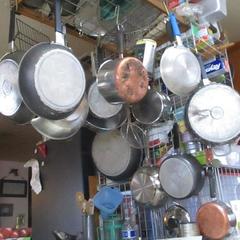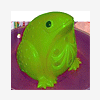-
Welcome to the eG Forums, a service of the eGullet Society for Culinary Arts & Letters. The Society is a 501(c)3 not-for-profit organization dedicated to the advancement of the culinary arts. These advertising-free forums are provided free of charge through donations from Society members. Anyone may read the forums, but to post you must create a free account.
Salting the Water For Hard-Boiled Eggs
-
Similar Content
-
- 0 replies
- 240 views
-
- 341 replies
- 96,365 views
-
- 18 replies
- 5,371 views
-
- 7 replies
- 1,814 views
-
- 13 replies
- 5,064 views
-
-
Recently Browsing 0 members
- No registered users viewing this page.






Recommended Posts